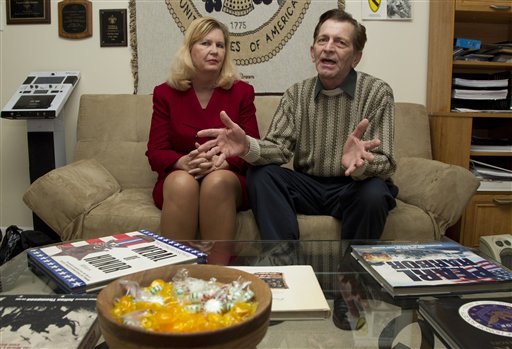In United States v. Alvarez, 567 U.S. __ (2012), the U.S. Supreme Court ruled that the Stolen Valor Act, a federal law that prohibited lying about receiving military medals, violated the First Amendment.
California man who lied about Congressional Medal prosecuted under Stolen Valor Act
Xavier Alvarez, a board member of the Three Valley Water District Board in Claremont, California, falsely claimed that he won the Congressional Medal of Honor in 1987. For this false statement, he faced prosecution under the Stolen Valor Act. He pled guilty but reserved the right to appeal his First Amendment claim. On appeal, the Ninth U.S. Circuit Court of Appeals ruled the law unconstitutional.
On further appeal, the U.S. Supreme Court ruled 6-3 that the law violated the First Amendment.
Supreme Court rules false speech can be protected
In his plurality opinion, Justice Anthony Kennedy rejected the government’s argument that false speech should fall into an unprotected category. Kennedy reasoned that sometimes false speech is protected as a way to ensure healthy protection for other expression.
Kennedy then noted that the law was a content-based restriction on speech. Such laws are constitutional only if they pass strict or exacting scrutiny. The government asserted that it had a compelling interest in protecting the integrity of the Medal of Honor. Kennedy agreed this was a compelling interest.
Court says Stolen Valor Act not narrowly tailored enough to address government interest
However, Kennedy reasoned that the law was not narrowly tailored enough to address the alleged harms associated with false claims of winning military honors. He noted that there was a less speech-restrictive alternative — a government-created database that lists the actual military medal-winners.
He explained that the better remedy was through the counterspeech doctrine – counter negative speech with positive speech first articulated by Justice Louis Brandeis in his concurring opinion in Whitney v. California (1927). “The remedy for speech that is false is speech that is true,” wrote Kennedy. “This is the ordinary response in a free society.”
Justice Stephen Breyer, joined by Justice Elena Kagan, wrote an opinion concurring only in the judgment. He would apply a version of intermediate scrutiny in examining the law but still invalidate it. Breyer quoted John Stuart Mill’s On Liberty for the proposition that false statements contribute to public debate because of the “the clear perception and livelier impression of truth, produced by its collision with error.”
New Stolen Valor Act criminalizes lies about military service with intent of financial gain
Justice Samuel Alito wrote a dissenting opinion, joined by Justices Antonin Scalia and Clarence Thomas. He wrote that “the right to free speech does not protect false factual statements that inflict real harm and serve no legitimate interest.”
In 2013, President Barrack Obama signed into law a new Stolen Valor Act, making it a federal crime if a person lies about their military service with the intent to obtain money, property or other tangible benefits.

